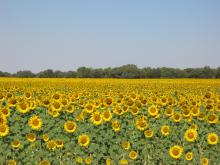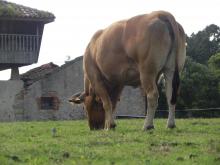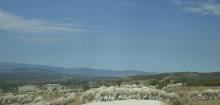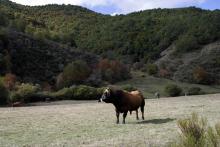You are here
Agriculture, livestock, fishing, aquaculture and food
Although it represents a mere 3% of Spain’s GDP, adapting Spain’s agricultural sector – including livestock breeding and aquaculture - to climate change is vital in order to maintain both the social and cultural aspects of Spain’s vast rural areas.
Agriculture and livestock activity in Spain are extremely sensitive to climate change, yet at the same time they possess a vast capacity for adaptation, as well as the ability to reduce their vulnerability and therefore benefit from any potentially positive impacts. Spain’s agricultural sector could be affected by the increase in air temperature, rising levels of CO2 present in the atmosphere, and changes in seasonal rainfall. The impacts will not affect all the Spanish regions in the same way: in some areas and in the case of certain crops they could be negative, but in others they may even be beneficial. In the case of livestock farming, the impacts can be grouped into two parameters: animal welfare and ingestion. The most evident effect is the availability of fodder resources, which conditions the ingestion and profitability of livestock farms. However, the impacts will also include parasite and infectious processes, whose etiological agents and/or vectors are closely linked to the climate.






